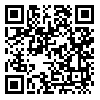Volume 31, Issue 2 (2024)
AIJH 2024, 31(2): 1-31 |
Back to browse issues page
Download citation:
BibTeX | RIS | EndNote | Medlars | ProCite | Reference Manager | RefWorks
Send citation to:



BibTeX | RIS | EndNote | Medlars | ProCite | Reference Manager | RefWorks
Send citation to:
janghorban K, Rasoulnia A H, saiiadi nezhad R. The Role of the Correlation Strategy in Creating Communication and Interaction in Socio-political Discourses of Imam Ali (AS). AIJH 2024; 31 (2) :1-31
URL: http://aijh.modares.ac.ir/article-31-67039-en.html
URL: http://aijh.modares.ac.ir/article-31-67039-en.html
1- PhD student in Arabic language and literature at Kashan University
2- Associate Professor, Department of Arabic Language and Literature, Kashan University
3- Associate Professor, Department of Arabic Language and Literature, Kashan University ,saiiadi57@gmail.com
2- Associate Professor, Department of Arabic Language and Literature, Kashan University
3- Associate Professor, Department of Arabic Language and Literature, Kashan University ,
Abstract: (921 Views)
The choice of a discourse strategy is one of the topics, through which, the effectiveness of the discourse can be guaranteed to a large extent, nevertheless achieving the desired goal is not possible unless there is a designed strategy as well as the degree of familiarity with the audience and knowledge of contexts such as social, cultural, psychological, etc., that help us in choosing the correct and effective strategy. One of these strategies is correlation, which the speaker uses, to flatten the way of communication and provide the foundations of affection and interaction between himself and others, until reaches his intended goals. The researchers of this article intend to investigate the application of the strategy of closeness and correlation and to know its tools and mechanisms by applying pragmatics. They come to the conclusion that Amir Al-Momenin Imam Ali (AS) was the master of discourse and he as a peerless eloquent in the social and political history of Islam that ceaselessly lightens the human history, tried to communicate with his followers in the best way by applying the correlation strategy. The bright elements in his discourse are: the power of words, the glory of speeches and also referring to names when addressing them, using pronouns, various melodies and the selection of words such as self-declarative, self- denial and indirect addresses with communicative and connective aims.
Keywords: Amir Al-Momenin, Nahjul Balagha, Discourse, Pragmatic, Correlation, Tools and Language Mechanism
Article Type: Original Research |
Subject:
Arts and Humanities (General)
Received: 2023/01/24 | Accepted: 2023/08/6 | Published: 2024/12/12
Received: 2023/01/24 | Accepted: 2023/08/6 | Published: 2024/12/12
Send email to the article author
| Rights and permissions | |
 |
This work is licensed under a Creative Commons Attribution-NonCommercial 4.0 International License. |







